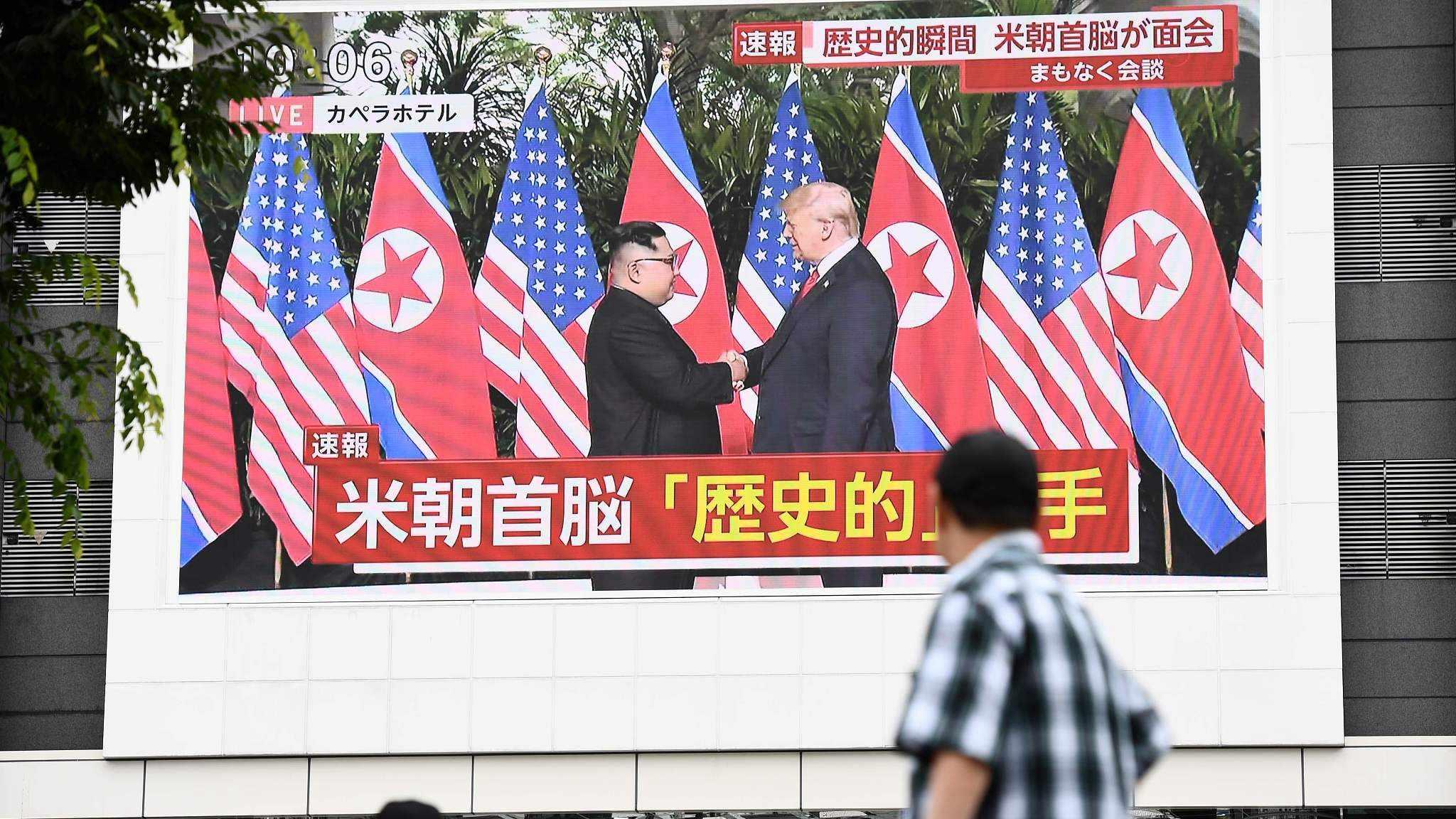TOKYO, Aug. 28 (CGTN) -- The Democratic People's Republic of Korea (DPRK) still poses a "serious and imminent threat", Japan said Tuesday in its first annual defense review since an outbreak of diplomacy on the Korean Peninsula.
Japan's 2018 defense white paper also took aim at China's rise as a military power, saying Beijing was sparking "strong security concerns in the region and international community, including Japan".
Last year's defense review was published at the height of the tensions with the DPRK, amid nuclear and missile tests and US President Donald Trump threatening to rain down "fire and fury" on Pyongyang if it kept up its threats.
But since then, a spectacular diplomatic detente has taken place, culminating in the historic summit between Trump and the DPRK's leader Kim Jong Un in Singapore on June 12.
Nevertheless, Tokyo insisted on Tuesday: "There is no change in our basic recognition concerning the threat of North Korea's (DPRK) nuclear weapons and missiles."
Pyongyang continues to post "an unprecedentedly serious and imminent threat to Japan's security and significantly damage the peace and security of the region and the international community", according to Tokyo.
Japanese Defense Minister Itsunori Onodera acknowledged in the document that the DPRK had begun "dialogue" with former foes the US and Republic of Korea (ROK).
"But we cannot overlook the fact that, even to this day, it possesses and fully deploys several hundred missiles that put nearly all of Japan within range," stressed the minister.
In response, Japan is steadily upgrading its capacity to shield the nation from the DPRK's arsenal, including a plan to spend some 4.2 billion US dollars over the next three decades on installing and operating US radar systems.
Despite the historic handshake in Singapore, there has been little progress in denuclearizing the Korean peninsula and Washington-Pyongyang relations appear to have taken a turn for the worse, with Trump abruptly scrapping a planned visit to the DPRK by Secretary of State Mike Pompeo.
